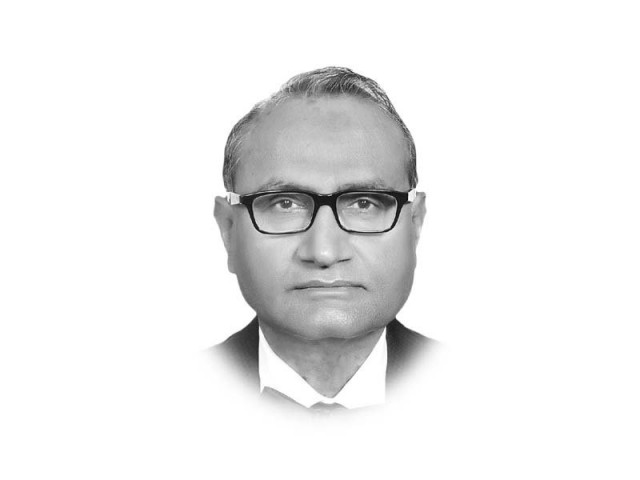More conflict of interest
To ensure the integrity of data, the PBS has to be made truly independent

The writer is a senior economist.
He can be contacted at pervez.tahir@tribune.com.pk
Close on the heels of the shameless self-defence by the commerce adviser of a financial deal comes the news of an institutional conflict of interest. Somebody should tell them of a longstanding tradition in the Government of Pakistan to keep the statistics agency away from the Planning Commission.
The reason is that the Planning Commission is the major consumer of the data gathered and processed by the Pakistan Bureau of Statistics (PBS). It has an interest in the kind and quality of information generated. It can, and in many cases, has influenced or attempted to influence the statistical process.
Statistics show what is and planning is about what ought to be .The latest example is a special meeting of the National Accounts Committee (NAC) forced on the PBS to squeeze out a baseline GDP of its liking for the non-starter 12th Five-Year Plan.
Normally, the NAC meets in May before the meeting of the Annual Plan Coordination Committee to enable the formulation of the macroeconomic framework for the next year. It so happens that the Statistics Division and the Planning Commission have the same minister, Makhdoom Khusro Bakhtiar.
Last such attempt was made at the time of formulating the Sixth Five-Year Plan 1983-88, with Mahbubul Haq as the deputy chairman/minister of planning. An additional secretary in charge of statistics had flatly refused.
A Central Statistical Office (CSO) was established in 1950 as an attached department of the Economic Affairs Division. In 1972, the CSO became an independent Statistics Division.
Its technical wing was made the Federal Bureau of Statistics (FBS), again an attached department of the Division. After the 18th Constitutional Amendment, the subject of census was moved to the Federal List, Part II.
The General Statistics (Reorganisation) Act was passed in 2011, merging the FBS, the Population Census Organisation and the Agricultural Census were to form the PBS. Under this Act, finance minister became the chair of the Governing Council of the PBS.
Finance ministers have been meddling in the statistics affairs ever more since the IMF programmes gave them dominance over the Planning Commission. In the Musharraf-Shaukat Aziz period, prices, industrial production, GDP growth and poverty were manipulated with impunity.
Ashfaque Hasan Khan, the now laundered member of the Economic Advisory Council, was their instrument for a ‘5th generation hybrid warfare’. His recent protestations about the poverty number are nothing more than a chor machaye shor story.
Then finance minister Ishaq Dar was also a creative accountant. In his first tenure in the late 1990s, he too was served by this great data masseur, introduced into the government by Hafiz Pasha. As prime minister, Shahid Khaqan Abbasi created a separate Ministry of Statistics. He thus took the first step towards independence.
Given its commitment to accountability, transparency and institutional autonomy, the PTI government was expected to make the PBS a fully autonomous organisation. Instead, it has recreated the anachronism of planning and statistics under one roof. Leaderless, there being no chief statistician, professionally depleted as positions of important members continue to be vacant, the PBS is vulnerable to manipulation from any quarter.
Statistics is a subject that appropriately belongs to the Council of Common Interests (CCI), not the federal government. To ensure the integrity of data, the PBS has to be made truly independent. This will remain a dream, with no end to conflicts of interest, so long as the PBS remains an attached department.
Published in The Express Tribune, February 15th, 2019.
Like Opinion & Editorial on Facebook, follow @ETOpEd on Twitter to receive all updates on all our daily pieces.















COMMENTS
Comments are moderated and generally will be posted if they are on-topic and not abusive.
For more information, please see our Comments FAQ